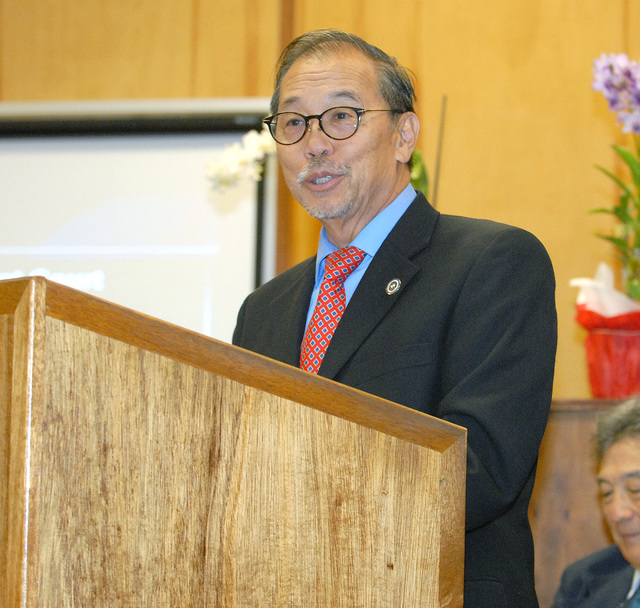A new environmental court makes its debut today with the task of handling cases that involve the often complex and specialized rules governing human interaction with lands and waterways.
Big Island judges have been selected to hear cases that are now being assigned to an environmental schedule — proceedings which in the past were mixed with other criminal and civil matters on court dockets.
Judge Ronald Ibarra is the senior environmental court judge for the Third Circuit. Judge Greg Nakamura is the Big Island’s second environmental court judge. In District Court, judges handling environmental proceedings are Barbara Takase, Melvin Fujino and Margaret Masunaga.
Chief Justice Mark Recktenwald finalized the selection on June 12.
The courts will have broad jurisdiction over water, forests, streams, beaches, air, mountains, and marine and terrestrial life, according to the Hawaii State Judiciary.
Associate Justice Michael Wilson chairs the Environmental Court Working Group — a hui of court personnel including representatives from the Big Island — charged with implementing the new court. The legal venue will put Hawaii in a better position to safeguard one of the most treasured environments in the world, Wilson said in a statement.
“By organizing the technical and legal environmental issues under the Environmental Court, the state Legislature’s intention of promoting and protecting Hawaii’s natural environment will be realized through informed, efficient and consistent application of environmental laws,” Wilson said.
Hawaii was the second state behind Vermont last year in creating the specialized court, which advocates describe as a way for judges to build up expertise and for the courts to offer even handling of cases that are often treated inconsistently depending on where the case is heard.
“Hopefully environmental matters will get the the priority they deserve, with judges who have a good understanding of the issues,” said Puna Sen. Russell Ruderman, one of the sponsors of the bill that created the law.
“Environmental issues should be prioritized and addressed promptly and seriously,” Ruderman said.
The creation of the court was opposed by the Hawaii Chamber of Commerce and some business and development groups. The Judiciary itself was not initially in support of a separate environmental court, saying instead that environmental calendars within existing courts would be a better use of resources. Since then, however, the working group of judges from around the state have labored to pave the way for the new court, amending court rules, updating case management systems and adjusting court schedules where necessary.
There are 350 environmental courts in 41 nations around the globe. Hawaii’s new Environmental Courts have received recognition, information and support from similar courts around the world, including the Land and Environment Court of New South Whales and India’s National Green Tribunal, considered the world’s leading environmental court, according to the Judiciary.
Under the new system, initial appearances for Environmental Court criminal cases will appear on regular arraignment and plea calendars. Environmental cases will then be assigned to the appropriate district and circuit environmental courts, which will specify days each month for the environmental calendar.



